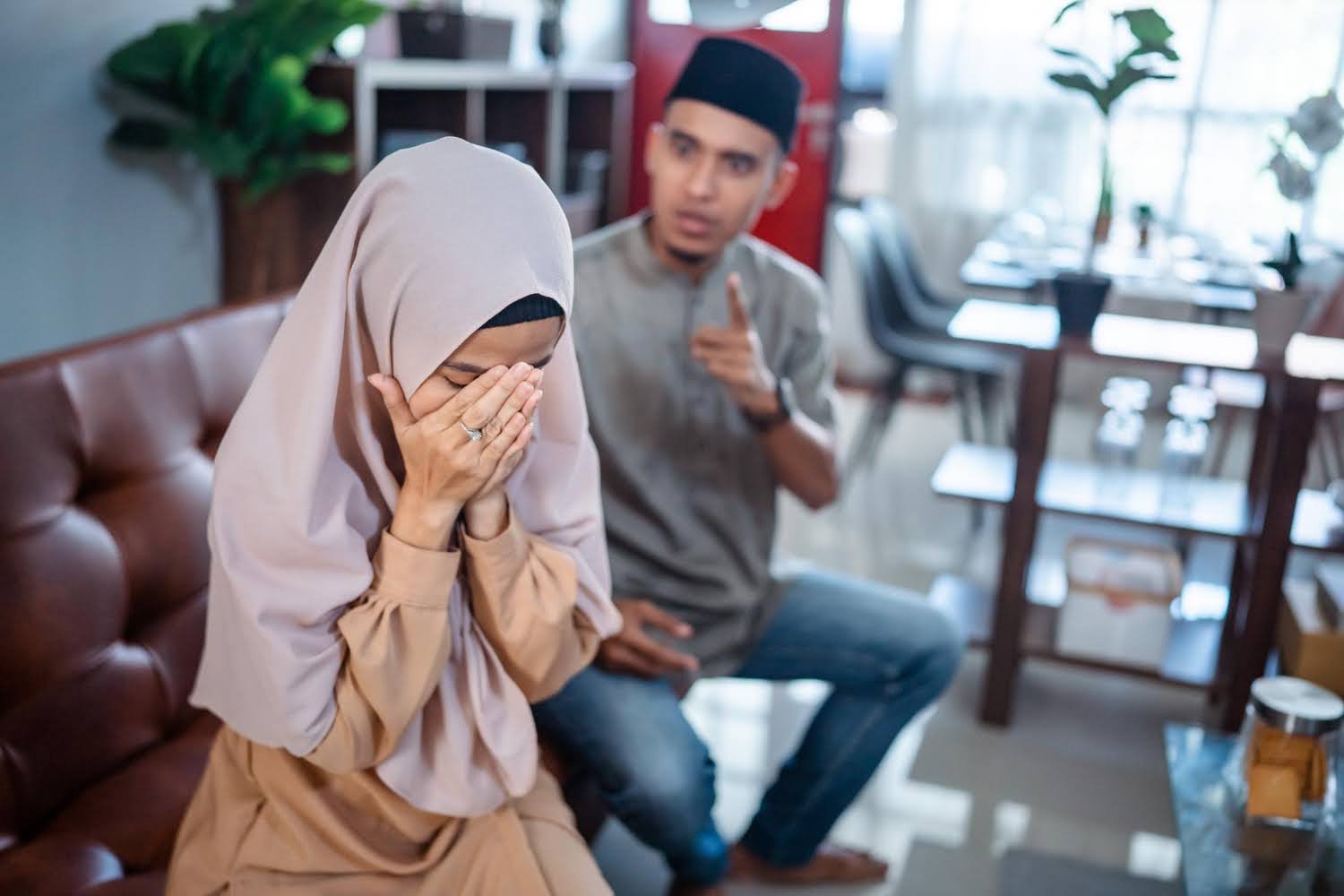
Going through a Muslim Divorce in Singapore can be confusing because there are specific steps you need to follow. This guide is here to help make things clearer.
We’ll talk about how to file for Divorce, what happens in Court, how to find a Divorce lawyer in Singapore and how things like money support and taking care of children are decided.
We’ve also put together some common questions people have and answered them to give you a better idea of what to expect. This guide is meant to be easy to understand and help you feel more prepared for what’s ahead.

Different Divorce Laws In Singapore Apply To Couples Married Under Civil Law And Muslim Law
The Family Court only handles Divorces for couples who are married under Civil Law.
The Syariah Court, under the Administration of Muslim Law Act (AMLA), handles matrimonial disputes involving Muslim parties or persons who are married under Muslim law.
You cannot apply for a Divorce in the Family Court if you or your spouse are Muslims or were married under the Muslim law.
Requirements For Obtaining A Divorce In Muslim Marriages
The procedure and type of Divorce in a Muslim marriage vary, depending on whether the husband or wife initiates the Divorce process.
Below are the details for each scenario.
When The Husband Initiates The Divorce
1. Talak
Talak is an Arabic term that translates to “To Release” or “To Divorce.”
Through the pronouncement of talak, a husband is permitted to Divorce his wife. This essentially grants the husband the ability to file for Divorce without the necessity of substantiating any grounds for the separation.
2. Filing For Divorce In The Syariah Court
As of 22 October 2018, husbands have been provided with an alternative route to initiate a Divorce in the Syariah Court. This option allows them to apply for a Divorce as plaintiffs without the need to pronounce talak.
When the Wife Initiates the Divorce
Conversely, if the wife wishes to initiate the Divorce, she must demonstrate at least one of the following grounds:
- Khuluk;
- Cerai Taklik (violation of taklik conditions) or
- Fasakh.
The only exception to this requirement is if she secures her husband’s agreement for the Divorce, in which case the Court will instruct the husband to issue a pronouncement of Divorce.
1. Khuluk (Divorce Through Redemption Or Compensation)
Khuluk represents a form of Divorce initiated by the wife, enabling her to request a separation from her husband.
In this arrangement, the wife proposes the Divorce, which the husband agrees to in exchange for a specified sum of money or equivalent compensation, as determined by the Court based on the couple’s social standing and financial capabilities.
A wife may opt for khuluk typically due to dissatisfaction with various aspects of her marital relationship.
This method might be chosen especially in situations where both spouses recognise their inability to fulfil the requirements of Syariah Law.
2. Cerai Taklik (Divorce Due To Breach Of Marriage Condition)
A taklik is a conditional clause in the marriage agreement. This could be any condition the husband sets during marriage, typically documented in the Marriage Certificate.
Examples of conditions set by husbands in a marriage agreement could include requirements for fidelity, the wife should not work in a certain field or agreements on the location of the couple’s residence.
For a wife to proceed with a Divorce on the grounds of cerai taklik, she must prove that her husband failed to uphold the conditions specified in the taklik.
If the taklik was documented in writing during or after the marriage, the Syariah Court would review this document. The Court will proceed to validate the Divorce if it finds that the breach of the taklik justifies a Divorce under Muslim law.
The Divorce becomes official once the required fees have been paid.
3. Fasakh (Marriage Annulment)
Fasakh refers to the annulment of a marriage. According to Section 49(1) of the Administration of Muslim Law Act (AMLA), there is a comprehensive list of grounds upon which a marriage may be annulled.
These grounds include situations where the husband:
- Has not provided maintenance to his wife for 3 months;
- Has been sentenced to imprisonment for at least 3 years;
- Has subjected her to cruelty, such as physical assault or maintaining a relationship with another woman while married;
- Was impotent at the time of the marriage and remains so; or
- Suffers from insanity.

The Muslim Divorce Procedure In Singapore
1. How To File For Divorce In Singapore’s Syariah Court
To start a Divorce proceeding, an application needs to be lodged with the Syariah Court. The applicant must provide the Court with several crucial documents as part of the filing process:
- The marriage certificate;
- Identification documents (both sides) or passports of the parties involved; and
- Birth certificates of any children born from the marriage.
Individuals must know that they must have been domiciled or habitually living in Singapore for a minimum of three years before filing for Divorce at the Syariah Court.
Generally, Singaporean citizenship indicates a person’s domicile within the country, barring evidence to the contrary.
2. Marriage Counselling And Parenting Programme Requirements
Following the submission and processing of the Divorce application form, the Syariah Court mandates that the involved parties participate in counselling through the Marriage Counseling Programme.
This counselling explores possibilities for reconciling the marriage and is a prerequisite before proceeding with Divorce proceedings.
Additionally, if there is at least one child under the age of 21, the parents are required to attend a parenting programme. This programme assists the parents in formulating a parenting plan that outlines the care and living arrangements for the child, prioritising the child’s best interests.
The counselling session and the parenting programme (if applicable) must be completed within six months before filing the Divorce application.
Should the parties decide to proceed with the Divorce despite the counselling, the applicant will be assigned a date to submit the Originating Summons and a Case Statement.
The Originating Summons is a legal document that formally commences the Divorce proceedings in Court, outlining the basis for the Divorce request.
Meanwhile, a Case Statement is a detailed document provided by the applicant explaining the reasons for the Divorce and any claims or demands, such as custody or financial support.
In cases where an agreement on the parenting plan is reached, both parties are expected to fill out and sign an Agreed Parenting Plan Form. Conversely, if an agreement cannot be made, the applicant must submit a Proposed Parenting Plan Form alongside the Originating Summons.
Templates for the parenting plan can be found on the official website of the Syariah Court.
Following this, the parties are instructed to participate in mediation sessions at the Syariah Court.
It’s important to note that even after completing the Marriage Counseling Programme, the Syariah Court may direct the parties to undergo additional counselling or engage in a family support programme during the later stages of the Divorce if it is deemed beneficial for the parties or their children.
3. Mediation Process
During the mediation session, key issues surrounding the Divorce, including child custody, division of matrimonial assets and the determination of nafkah iddah and mutaah, will be addressed.
Nafkah iddah refers to the financial support a husband must provide his wife during the waiting period (iddah) following a Divorce, ensuring her well-being until she can support herself.
Mutaah, on the other hand, is the financial compensation the husband gives the wife upon Divorce, acknowledging her contributions to the marriage and assisting her transition post-Divorce.
Should the parties reach a consensus during mediation, the Court will issue a Divorce decree based on the agreed terms.
If the parties fail to agree, the Syariah Court will schedule a pre-trial conference to provide further instructions. Following this, the case will proceed to trial.
Additionally, the Court has the authority to assign up to two arbitrators, or hakams, chosen by the parties under the Court’s guidance. Each hakam represents one party—the husband or the wife—aiming to arbitrate the dispute.
4. Pre-Trial Conference And Trial Procedure
Before the commencement of the trial, the Syariah Court will set a date for a pre-trial conference. This session provides both parties detailed instructions and expectations for the upcoming trial.
Attendance at the trial is mandatory for both parties and their legal representatives, should they choose to hire family or Divorce lawyers in Singapore.
During the trial, the judge will listen to the arguments from both sides concerning their desires and concerns related to the Divorce and any related issues. The judge will deliver a verdict after considering the evidence and arguments presented.
Upon the conclusion of the trial, the Syariah Court will schedule a date for the parties to receive their Divorce certificate and the final decree, officially documenting the dissolution of the marriage.

5. Child Custody Considerations
In cases where the Syariah Court must make decisions regarding child custody, it thoroughly evaluates all relevant aspects of the situation. Determining which parent will receive custody hinges on several key factors:
- The capability of each parent to cater to the child’s needs;
- Insights and recommendations from social support and family agencies; and
- Consideration of the child’s age and personal preferences.
To safeguard the child’s best interests during custody and welfare discussions, the Syariah Court may designate a child representative. This representative’s role is to ensure the child’s voice and welfare are central to any decisions made.
Furthermore, the Court has the authority to engage a registered medical practitioner, psychologist, counsellor, social worker or mental health professional to conduct evaluations of the child.
These assessments aim to generate expert testimony relevant to proceedings concerning the child’s custody or overall welfare, providing the Court with comprehensive insights to inform its decision-making process.
6. Maintenance Following Divorce
Maintenance refers to the financial support provided by one ex-spouse to the other following a Divorce, encompassing both spousal and child maintenance.
In contrast to civil Divorces overseen by the Family Justice Courts, the Syariah Court does not issue maintenance orders for the wife or children. However, it can grant two specific types of financial support to the wife:
- Nafkah Iddah: This is maintenance for the iddah period, which is the time frame during which Islamic law prohibits a Divorced woman from remarrying, typically lasting for three menstrual cycles.
- Mutaah: Known as a “consolatory gift” upon Divorce, the amount of mutaah is calculated using a formula that might involve a daily sum multiplied by the duration of the marriage or a specific lump sum.
For instance, the Syariah Court might mandate a daily payment of $3 times the number of days the marriage lasted, or it may stipulate a fixed lump sum.
The wife is responsible for suggesting the amounts for nafkah iddah and mutaah. The Syariah Court then assesses these proposals to determine their suitability, considering the husband’s financial capacity.
Moreover, a wife seeking maintenance for herself or her children can file a separate civil application with the Family Justice Courts to request spousal maintenance and child support orders.
7. Appealing The Syariah Court’s Decision
Should either party disagree with the decision made by the Syariah Court regarding the Divorce or any related issue, they can file an appeal.
This appeal must be submitted to the Appeal Board, which is part of the Islamic Religious Council of Singapore, no later than 30 days following the decision’s issuance.
It’s recommended that parties consider obtaining legal counsel to assess the viability and advisability of pursuing an appeal before filing.
This step ensures that the party clearly understands the legal implications and potential outcomes of the appeal process.
Conclusion About Muslim Divorce Procedure In Singapore
The procedure for obtaining a Muslim Divorce in Singapore is designed to consider the welfare of all parties involved, especially children, and to ensure that financial provisions such as nafkah iddah and mutaah are fairly determined.
Given the complexities of navigating a Divorce’s legal and emotional aspects, individuals undergoing this process may benefit significantly from professional legal advice from a family or Divorce lawyer in Singapore.
To help individuals understand their rights and options during this challenging time, Singapore Family Lawyer offers a free 30-minute consultation with one of our experienced lawyers.
This consultation can provide valuable insights and guidance tailored to your unique situation, helping you to make informed decisions as you move forward. Claim your free 30-minute consultation today.
Frequently Asked Questions About Muslim Divorce Procedure In Singapore
How Long Does A Muslim Divorce Take In Singapore?
The duration of a Muslim Divorce in Singapore can vary depending on the complexity of the case and the cooperation between the parties involved.
Typically, after the completion of mandatory counselling and mediation sessions, if a Divorce is uncontested, it may take around 4 to 6 months to finalise.
However, if the Divorce is contested or if there are complex issues to resolve, the process can take a year or more.
Do I Need A Lawyer For Muslim Divorce In Singapore?
In Singapore, it is not mandatory to have a lawyer for a Muslim Divorce, as individuals can represent themselves throughout the process.
However, engaging a lawyer who specialises in Syariah law can be beneficial, especially in navigating the complexities of the legal process, such as filing the necessary documents and representing your interests in mediation sessions.
A great Divorce lawyer in Singapore can also provide advice on matters like child custody, division of assets and financial support.
Is It Possible To Reconcile After Filing For Divorce In The Syariah Court, And How Does It Affect The Divorce Proceedings?
Yes, reconciliation after filing for Divorce in the Syariah Court is possible and even encouraged through mandatory counselling sessions. If both parties agree to reconcile, they can withdraw the Divorce application before the final decree is issued, effectively halting the Divorce proceedings.
What Happens If One Party Fails To Attend The Mandatory Counselling Or Parenting Programme Ordered By The Syariah Court?
Failure to attend the mandatory counselling or parenting programme can lead to a delay or suspension of the Divorce proceedings. The Syariah Court may order additional sessions or take further actions to ensure compliance, emphasising the importance of these programmes in the Divorce process.
How Does The Syariah Court Determine The Best Interests Of The Child In Custody Cases?
The Syariah Court considers various factors to determine what arrangement serves the child’s best interests.
This includes the child’s physical, emotional and educational needs, the parent’s ability to meet those needs, the child’s age and preferences and recommendations from social services or child welfare experts.
Can The Syariah Court’s Decision On Divorce Be Challenged Or Revised Once The Divorce Certificate Has Been Issued?
Once the Divorce Certificate has been issued, challenging or revising the Syariah Court’s decision becomes significantly more difficult. However, parties can file an appeal with the Appeal Board within 30 days from the decision date if they believe there has been a misapplication of the law or procedural irregularities.
What Legal Resources Are Available For Individuals Who Cannot Afford A Lawyer For Their Muslim Divorce Proceedings In Singapore?
For individuals unable to afford legal representation, Singapore provides legal aid services through the Legal Aid Bureau for civil matters and various legal clinics that offer pro bono services.
Additionally, community organisations and the Singapore Council of Women’s Organisations (SCWO) offer support and advice for navigating Divorce proceedings.